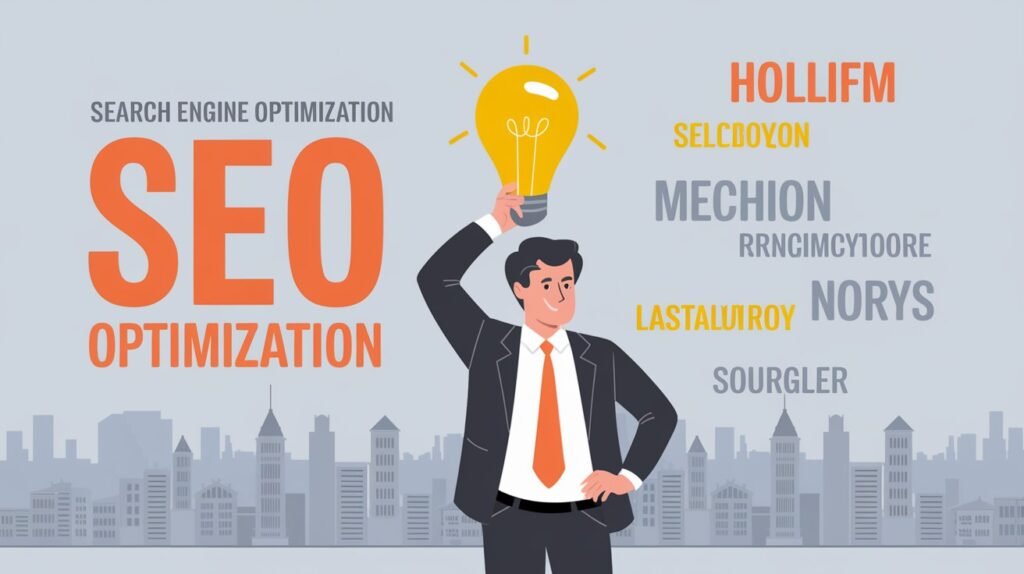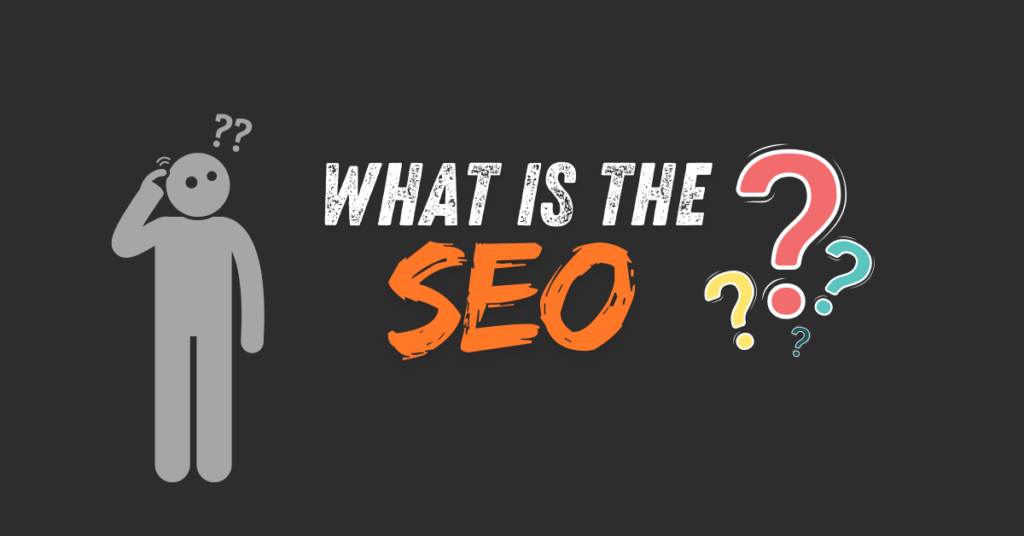Search Engine Optimization (SEO) is a complex and ever-evolving field that involves optimizing websites to rank higher in search engine results. Whether you’re a beginner or a seasoned SEO expert, understanding key SEO terms is crucial for improving your website’s visibility and performance.
This guide provides a comprehensive overview of essential SEO terms, helping you enhance your knowledge and expertise in the field.
1. Search Engine Optimization (SEO)
Definition: SEO is the process of optimizing your website to improve its visibility in search engines like Google, Bing, and Yahoo. By enhancing on-page and off-page elements, SEO helps your website rank higher for relevant keywords, driving organic (unpaid) traffic.
Importance: SEO is crucial for improving your website’s search engine rankings, which leads to more visibility, traffic, and potential customers. It involves various techniques like keyword research, on-page optimization, and link building.
2. Keywords
Definition: Keywords are specific words or phrases that users type into search engines when looking for information. In SEO, keywords are targeted to help search engines understand the content on your website and match it with relevant searches.
Types:
- Short-tail keywords: Broad, generic terms (e.g., “shoes”).
- Long-tail keywords: More specific, niche terms (e.g., “women’s running shoes size 7”).
Importance: Keyword research is essential for identifying the terms your target audience is searching for. Optimizing your content with relevant keywords improves your chances of ranking for those searches.
3. On-Page SEO
Definition: On-page SEO refers to optimizing individual web pages to rank higher and earn more relevant traffic in search engines. It involves optimizing content, meta tags, URL structure, and internal linking.
Components:
- Title tags: The clickable headlines that appear in search engine results.
- Meta descriptions: Short summaries of a webpage’s content.
- Header tags (H1, H2, etc.): Used to structure your content for better readability and SEO.
Importance: On-page SEO ensures that search engines can understand your content and index it properly, which can lead to higher rankings.
4. Off-Page SEO
Definition: Off-page SEO refers to external activities that impact your website’s visibility and rankings, such as building backlinks, social media marketing, and influencer outreach.
Key Factor:
- Backlinks: Links from other websites to your own. High-quality backlinks signal to search engines that your content is credible and valuable.
Importance: Off-page SEO helps establish your website’s authority and trustworthiness, which are key ranking factors.
5. Backlinks
Definition: Backlinks, also known as inbound links, are links from other websites that point to your site. They act as endorsements, signaling to search engines that your content is authoritative and worth referencing.
Types:
- Do-follow links: Pass on SEO value (link juice) to your site.
- No-follow links: Do not pass on SEO value but can still drive traffic.
Importance: The quality and quantity of backlinks can significantly influence your site’s ranking. Earning links from authoritative sites helps boost your domain’s authority.
6. Domain Authority (DA)
Definition: Domain Authority is a metric developed by Moz that predicts how well a website will rank in search engine results. It ranges from 1 to 100, with higher scores indicating a stronger ability to rank.
Factors Affecting DA:
- The number of linking root domains.
- The quality of backlinks.
- The relevance of the website’s content.
Importance: A higher DA suggests a website has more authority in its niche, making it more likely to rank for competitive keywords.
7. Page Authority (PA)
Definition: Page Authority measures the likelihood of a specific webpage ranking well in search engine results. Like Domain Authority, it is scored between 1 and 100.
Importance: Focusing on boosting Page Authority can help individual pages rank higher, especially for targeted keywords.
8. Search Engine Results Pages (SERPs)
Definition: SERPs are the pages displayed by search engines in response to a user’s query. They include organic listings, paid ads, and other features like featured snippets and knowledge panels.
Key Features:
- Featured snippets: Quick answers displayed at the top of SERPs.
- Knowledge panels: Information boxes that appear on the right-hand side of SERPs.
- Local packs: Lists of local businesses relevant to the search query.
Importance: Ranking high on SERPs increases your visibility, driving more organic traffic to your site.
9. Featured Snippets
Definition: Featured snippets are short snippets of information that appear at the top of Google’s search results in response to specific queries. They are pulled from websites that Google considers highly authoritative.
Importance: Featured snippets occupy prime real estate on SERPs, giving your website the opportunity to gain increased visibility and clicks.
10. Organic Traffic
Definition: Organic traffic refers to visitors who come to your website through unpaid search engine results. It’s the most valuable type of traffic because it indicates users are actively searching for information related to your content.
Importance: Organic traffic is highly targeted and often results in higher engagement and conversion rates compared to paid traffic.
11. Pay-Per-Click (PPC)
Definition: PPC is a form of online advertising where advertisers pay a fee each time their ad is clicked. Google Ads is the most popular platform for PPC campaigns.
Difference from SEO: While SEO focuses on organic rankings, PPC is a paid strategy to quickly generate traffic. Both should be part of a comprehensive digital marketing strategy.
Importance: PPC can provide immediate results, helping businesses drive traffic and sales while working on longer-term SEO strategies.
12. Crawlability
Definition: Crawlability refers to how easily search engine bots can discover and navigate your website’s content.
Factors That Affect Crawlability:
- Proper site architecture.
- Working internal links.
- Correct use of robots.txt and meta tags.
Importance: If search engines cannot crawl your site, your pages won’t be indexed and will not appear in search results.
13. Indexing
Definition: Indexing is the process by which search engines store and organize content found during crawling. Pages that are indexed can appear in search results.
Importance: Ensuring that your pages are indexed is critical for visibility in search engines. Tools like Google Search Console can help monitor and fix indexing issues.
14. Google Algorithm
Definition: Google’s algorithm is a complex system used to retrieve data from its search index and instantly deliver the best possible results for a query. The algorithm uses hundreds of factors to rank web pages.
Major Algorithm Updates:
- Panda: Focuses on content quality.
- Penguin: Targets link spam.
- Hummingbird: Improves query interpretation.
- BERT: Enhances understanding of natural language.
Importance: Staying up-to-date with Google’s algorithm updates is essential for maintaining and improving your rankings.
15. Anchor Text
Definition: Anchor text is the clickable text in a hyperlink. Optimizing anchor text is crucial for SEO as it gives context about the linked page to both users and search engines.
Types:
- Exact match: Matches the keyword exactly.
- Partial match: Contains the keyword but not an exact match.
- Branded: Includes the brand name.
- Generic: Uses phrases like “click here.”
Importance: Properly using anchor text helps search engines understand the content of the linked page, improving relevance and rankings.
16. Alt Text
Definition: Alt text (alternative text) is used to describe images to search engines and visually impaired users. It helps search engines understand the image content, contributing to image search rankings.
Importance: Adding relevant alt text to your images can improve your website’s SEO and help images rank in Google Image Search.
Conclusion: Mastering SEO Terminology
Understanding these SEO terms is essential for anyone looking to succeed in the competitive digital landscape. By mastering these concepts, you can better optimize your website, improve its visibility, and achieve higher rankings in search engines.
SEO is not a one-time effort, but an ongoing process of refining your strategy based on data, algorithm updates, and user behavior. Stay informed, adapt to changes, and keep implementing best practices to drive long-term success.


